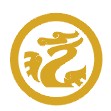
Unit 11 At the Information Desk of a Travel Agency
第十一单元 在旅行社的服务台前
导 读
Unit 11—Unit 15是这本书的第三大单元,主题是旅游信息,包括获得旅游信息的途径,航班和火车时刻,旅游和度假安排,团体旅游等内容。语法我们讨论冠词的用法、名词复数、代词的主格、宾格和所有格。本课我们学习在旅行社服务台或通过其它途径了解旅游信息。课文有对话“A: I prefer warm places.”,“B: Where to spend our holidays?”,短文“How can you get travel information?”。英语名词前面常要用冠词,冠词有不定冠词和定冠词两种。我们这课的语法就要学习领会冠词的用法。
译 文
对话一 我更喜欢暖和的地方
现在越来越多的人对于出国度假感兴趣。吴先生正是为此来旅行社的。
工作人员:早晨好,先生!请问您有什么事?
吴先生:我想出国度假。
工作人员:好的,先生。请问您想去哪儿?
吴先生:我也不知道。我只是工作太劳累,厌倦了,想放松一下。
工作人员:也许你可以到瑞士度假。说不定你会喜欢滑雪。
吴先生:但是那里太冷了,我更喜欢暖和的地方。
工作人员:那澳大利亚怎么样?那里终年阳光明媚。
吴先生:好主意。我还可以练习英语。
对话二 我们到什么地方去度假?
这是留学生王平和陈伟在美国的第一个暑假。但是他们不知道该到什么地方去度假。所以他们来到一家旅行社的服务台。
王平:我们放假了。你能不能给我们推荐几个地方去游览?
工作人员:说不定你们会很喜欢西海岸,洛杉矶或旧金山。
陈伟:这些地方怎么样?
王平:很可爱呀。
陈伟:都有些什么值得看的?
工作人员:在洛杉矶有好莱坞,环球公司制片厂,迪斯尼乐园。
王平:那么旧金山呢?
工作人员:旧金山可以说是美国最美的城市:那里所有的山啊,海湾啊,古老迷人的维多利亚式房子啊,还有电缆车。
王平:谢谢你的这些建议。
短文 怎样获得旅游信息
有几种不同的方法可以了解你去观光的国家和地区。如果你有朋友去过那儿,你可以跟他们聊聊。他们会为你详细而又生动地描述那个地方。最重要的是他们会给你提一些有价值的旅行建议,如什么地方比别处更有意思啦,怎么才能玩得更尽兴啦,都需要注意些什么啦,等等。这些建议都是他们自己的亲身经历。
另外一种方法是去旅行社咨询。有经验的旅行社工作人员会为你提供许多信息。最重要的是他们愿意随时帮助你。
除此之外,你还可以读一些有关旅游的书。这些书也很有用,有时甚至胜过朋友或旅行社,因为只要你需要,任何时候想读都可以。
Main points of the text
Dialogue A
1. prefer: like better 更喜欢 prefer A to B 与B相比更喜欢A
eg. —hich would you like, coffee (咖啡) or black tea (红茶)?
— prefer black tea.
2. Nowadays more and more people are interested in spending their holidays abroad.
1) sb. be interested in sth.: sth. be of interest to sb. 对…感兴趣
2) abroad: in or to a foreign country or foreign countries“在/到国外”,是副词,和here, there一样在用时前面不要加in, to。
3. I have no idea.
“我不知道”。这是习语,别译成“我没主意”。
4. You may enjoy skiing.
may是情态动词,后面动词必须用原形。
enjoy: take pleasure from 享受…的乐趣
enjoy doing sth., enjoy oneself: be happy, have a good time
eg. You can relax and enjoy yourself by enjoying sunbathing and swimming in the sea in Qingdao, the beautiful seaside city.
在美丽的海滨城市青岛,尽情地享受日光浴和在大海中畅游会使你轻松惬意,心旷神怡。
5. There is a lot of sunshine there all year round
sunshine 是不可数名词,故 前面用there is 而非there are。all year round 也可以说成throughout the year
6. And I can practice my English as well.
as well: too 也
Dialogue B
1. This is the first summer vacation ( Wang Ping and Chen Wei, two overseas students, have ) in the United States.
括号部分为修饰the first summer vacation的定语从句(括到States亦可)。
2. 在两个对话中我们学了三个“度假”:spend / take one’s holiday, be on one’s holiday
3. What are they like? 这里like是介词“象…” 而非动词“喜欢”。
eg. The twin sisters look like each other very much. 这对孪生姐妹长得很相象。
4. It’s probably the most beautiful town in the U.S.—…
probably: maybe, perhaps 也许,可能
Passage
1. There are several ways [ you can find out about the countries and places].
中括号部分为修饰the ways的定语从句, 其中又套一个定语从句( you wish to visit ),修饰the countries and places。
2. If your friends have been there, you can talk to them.
If是连词,意为“如果”,引导条件状语从句。
have been there 是现在完成时,意为“曾经去过那里”,同学们可以把它和be going to 一样当词组记忆。
3. They may give you detailed and vivid descriptions about the place.
谓语动词 间接宾语 直接宾语
4. What should you pay more attention to?
pay more attention to 更加注意;pay little attention to 不太注意;pay no attention to 不注意
5. An experienced agent may offer you a lot of information.
谓语动词 间接宾语 直接宾语
More practice of the text
Translation
1. — That’s very kind of you. 6. 很高兴在这里见到你。
— You are welcome.
2. It’s our honor to have you here. 7. 让我来自我介绍一下。
3. It would be my pleasure. 8. 你能给我这个机会吗?
4. I’m trying to get a job with the joint venture. 9. 我总听他谈起你。
5. It seems they used to be nurse. 10. 我们将在这个学校学习三年。
Key:
1. — 你很好。 6. I’m glad to see you here.
— 别客气。
2. 很荣幸能请你来。 7. Let me introduce myself.
3. 那将是我的荣幸。/ 愿意为您效劳。 8. Would you offer / give me the Chance?
4. 我想在这家合资企业找个工作。 9. I’ve heard quite a lot about you from him.
5. 看来他们以前是护士。 10. We’ll study for three years in this school.
Helping you with the exercises
1 Are the following statements true (T) or false (F) according to the dialogues?
Key:
1. T 2. T 3. F (He says “I’m just bored with my hard work”
4. F (He says “And I can practice my English as well”. So he mustn’t come from an English –speaking country. Neither can he talk freely with Australians.
5. T 6. F 7. F (6和7都是地名颠倒) 8. T
2 Give a brief answer to each of the following questions according to the dialogues.
Key:
1. He can enjoy skiing.
2. Yes, he can. Because he says " I can practice my English."
3. Hollywood, Universal Studios and Disneyland.
4. Along the west coast of the U.S.
5. In San Francisco.
3 Decide the best answer from each group of choices according to the passage.
Key:
1. d (如果你觉得前面每一项都对, 往往该选此项; 如果你觉得前面每一项都不对, 往往该选None of the above 非以上任何一项) 2. c (根据上下文猜测) 3. b (a和c口气绝对, 不完全符合文章本意; d 文中未提到) 4. c (见文中最后一句)
4 Here is a summary of the patterns and expressions often used in asking for or giving advice on traveling. Read them and try to learn them by heart.
请背熟以下寻求或提出旅游建议的句型和表达法。
suggestions (建议) attractive(吸引人的)
Lovely(可爱的;秀丽的). Charming(迷人的).
5 Fang is consulting (向…咨询) a travel agent on where to spend her holiday abroad. Complete the following dialogue. (你可以参考课文和练习4的内容)
Key:
1. Would you give me some suggestions on where to go, please. // Where do you recommend?
2. How/What about
3. How is it
4. What can I see there
5. What's the city like
6 Match the words in Column A with explanations in Column B.
Key:
1. d 2. e 3. f 4 .i 5. c 6. a 7. b 8. h 9. j 10. g
7 Make sentences after the model.
按照例句来造句。(注意看明白所给的句子, 把与所给内容不同的部分替换下来。)
Example: He is an experienced agent.
(they) They are experienced agents.
Key:
1. The magazine is quite helpful to Xiao Li.
2. Summer vacation is coming.
3. Whenever Mr. Wu wants, he can go swimming.
4. Timmy consults his notebook whenever he has a question.
5. Besides her, Hua is also going to visit the city.
6. The Joneses often offer a lot of help to their friends.
7. Jack enjoys himself very much.
8 Translate the following sentences into English by using the given phrases.
Key:
1. Which place would you like to visit?
2. I prefer to take a holiday abroad.
3. I can go skiing in Switzerland as well.
4. I have no idea where to go. I just want to relax.
5. The bay is crowded with tourists all year round.
6. Could you give me some suggestions on where to go?
7. What do you think Shenzhen is like?
8. They are always ready to help others.
9 Read the following passage carefully and complete the statements that follow.
Key:
1. the heart 2. tall buildings and theaters 3. Empire State Building
4. theater centre and the longest street in N.Y. City 5. its Chinese population
Grammar Focus
冠词(Articles)的用法
Practice your grammar
做练习之前要仔细体会以上例句。平时还要多积累感性知识,看标准英语中冠词是如何使用的。
1 Put a/an or the into the following sentences where necessary.
Key:
1. the / a...the 2. a....the 3. the ...the 4. The ...an 5. An...a ...an 6. the ....the
7. a....the 8. x...the 9. the ...x... x...x...the 10. x...the 11. The 12. a...the ...the
13. a...the... 14. The...the 15. a....the 16. a 17. a 18. the ...the ...the
2 Put proper articles in the black of the following passage. 用适当的冠词填空。
Key:
a/the/a/an/a/a/a/the, the/the/the/a, the/the/the/the/an
3 Translate the following sentences into English.
Key:
1. I have a travel book. The book is very useful.
2. Xiao Li comes to a travel agency to ask for information.
3. I like milk, but the milk in this glass has gone bad.
4. She is the only girl in the class.
5. Please drink the water!
6. This is a used car, but I like it .
7. Children like to play football these days.
8. This is the largest lake on the earth.
Merry Learning
内容详见多媒体配套光盘。
Listening In and Speaking Out
1 Conversations
Listen to the conversations and choose the best answers to complete the statements.
1. The woman’s brother’s birthday is ____.
a. March 4 b. March 14 c. May 4 d. May 14
2. ____ is not convenient for the woman.
a. This Monday b. Next Monday c. This month d. Next month
3. The man will stay at home during this ____.
a. spring b. Summer c. autumn d. winter
4. The woman’s class will meet at ____.
a. six in the morning c. seven in the morning
b. six in the evening d. seven in the evening
5. This conversation is probably taking place ____.
a. at night b. in the evening c. at noon d. in the morning
2 Passage
Listen to the passage and then choose the best answer to each question
1. When do Mr. And Mrs. Simms usually go to the markets?
a. On Saturdays. b. On Sundays. c. Every day. d. Before Holidays.
2. Who enjoys shopping?
a. Mr. Simms. b. Mrs. Simms. c. Both of them. d. Neither of them.
3. Mrs. Simms usually buys the following except ____.
a. fish b. vegetable c. fruit d. wine酒
4. What does Mr. Simms do when his wife finishes her shopping?
a. He talks with others b. He sleeps on a bench (长凳).
c. He sits on a box and waits for her. d. He carries the bags home.
3 Spot Dictation
Listen to the short passage and fill in the blanks with the missing words.
It is still winter. But it is sunny ____ the time. My husband and I often have a ____ along the sea shore in the afternoon. We have to ____on our overcoats and wear ___ caps. The sea water is cold and the wind is ____. But we don’t car. They will make us feel ____ when we return home to sit ____ a warm fire.
4 Picture Identification
 Listen to the five statements and decide whether they are true (T) or false (F) according to the picture.
Listen to the five statements and decide whether they are true (T) or false (F) according to the picture.
1. 2. 3. 4. 5.




















